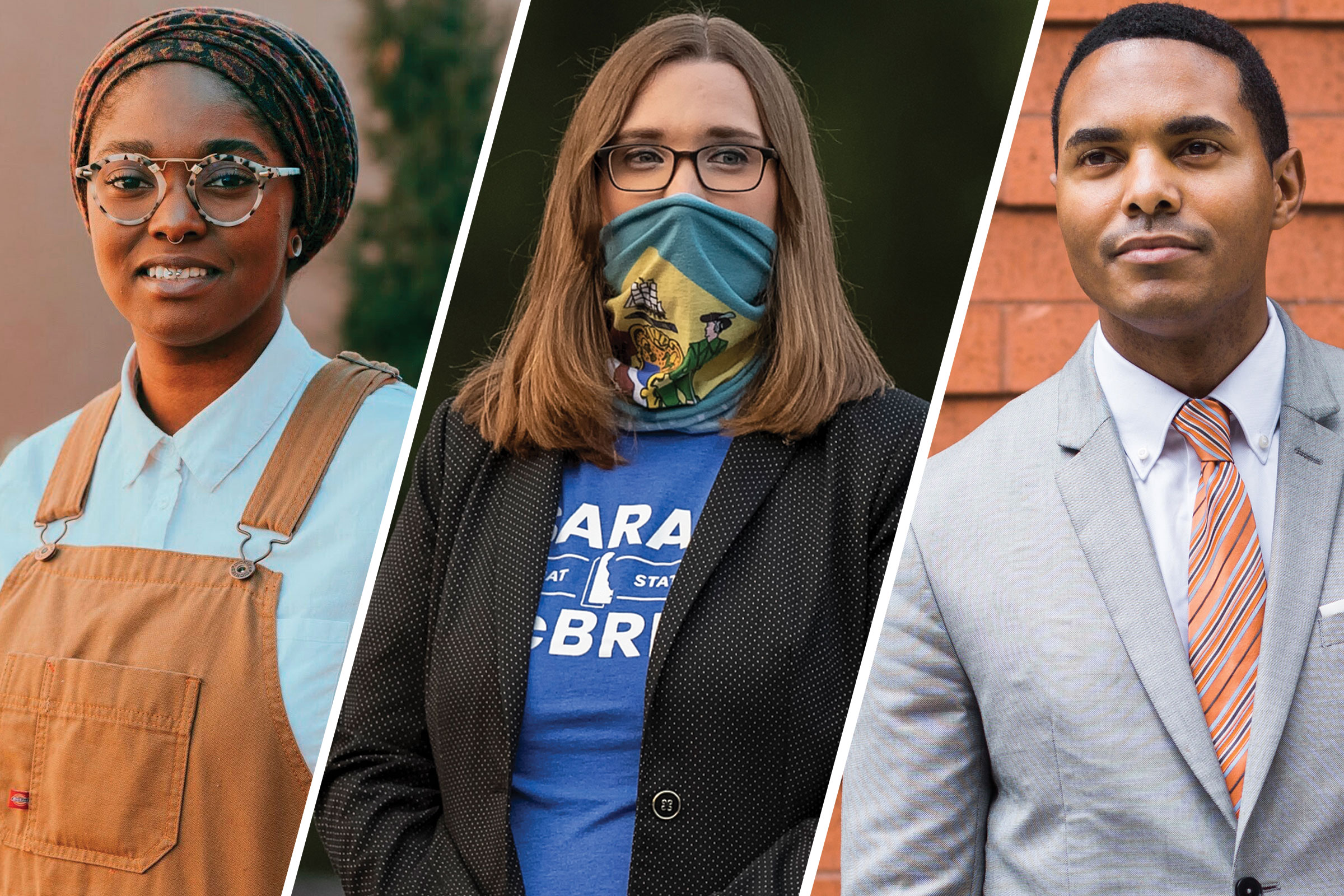
When Sarah McBride is sworn in as a Delaware state senator on Jan. 12, she will become the highest-ranking openly transgender publicly-elected official in U.S. history. On that day, she tells TIME she’ll be thinking of her late husband Andrew Cray, who died of terminal cancer just a few days after their wedding in 2014. “As I put my left hand on the Bible—with my wedding ring that I still wear—and raise my right hand, I’ll be thinking of Andy, and I’ll be thinking about doing justice to his legacy,” McBride says, referring to Cray’s advocacy in advancing LGBTQ healthcare equality.
30-year-old McBride, who was also the first openly transgender person to speak at a national party convention during the Democratic National Convention in 2016, is one of 334 openly LGBTQ candidates who won office in the 2020 elections—the highest ever in any election year. Those wins spanned from Congressional seats to State Senate seats and local government offices, and nearly half were from non-incumbent candidates.
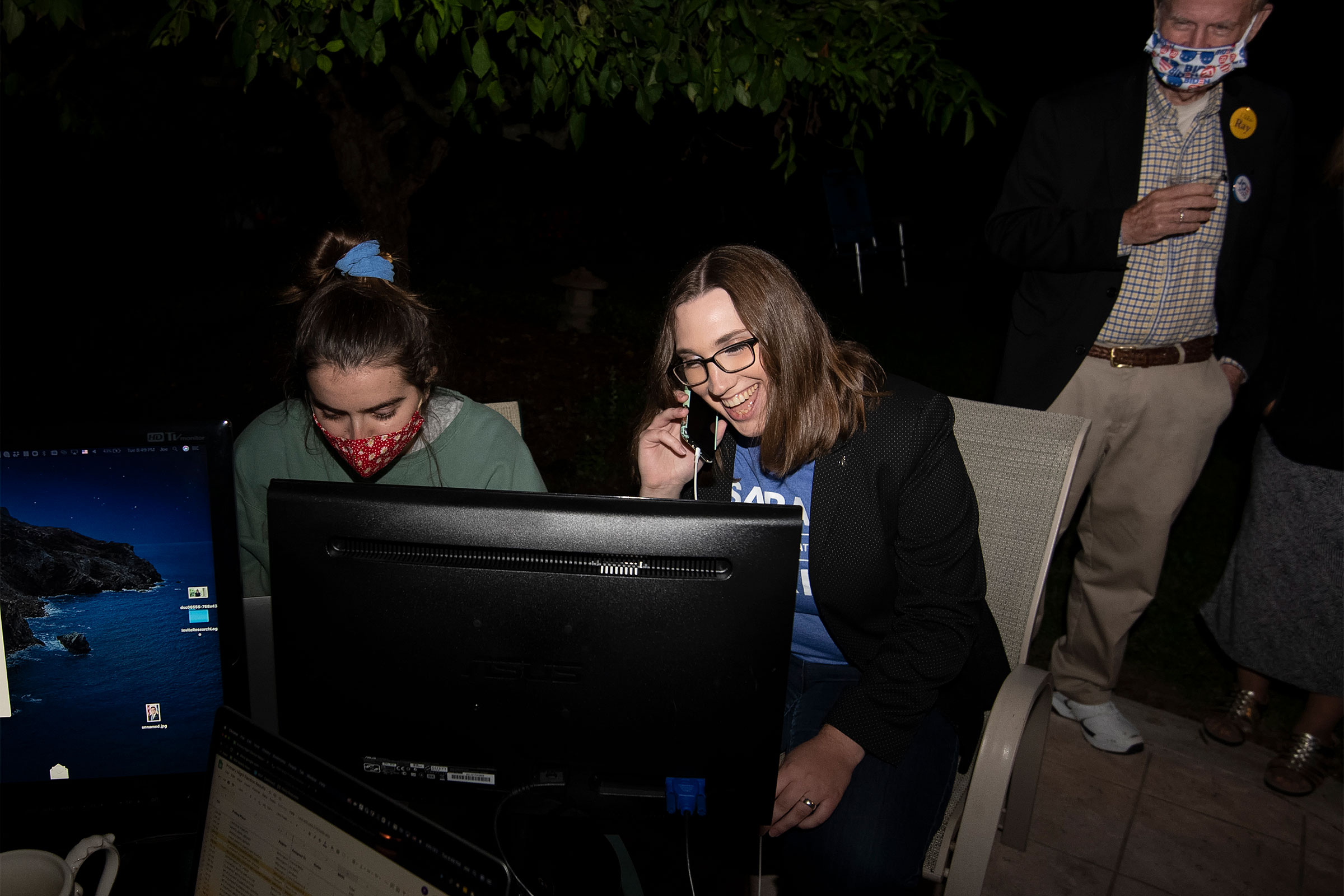
On the heels of the past four years, in which LGBTQ advocates argue the Trump Administration has attempted to sow divisions among the queer community by remaining silent on LGBTQ issues and presiding over a rollback of rights targeting transgender people, the “rainbow wave” of new elected officials indicates a broader reflection in America’s changing demographics, and increasing acceptance of queer communities. To McBride, it sends the message to LGBTQ youth across the U.S. that, “our democracy can be big enough for them and that their voices matter too.” She and several other elected officials who spoke with TIME after their election wins used a common analogy to explain the importance of representation: “If you’re not at the table, then you’re on the menu.”
Read more: These 2020 Candidates Made History With Their Election Wins
“It was very apparent to me from a young age that, specifically here in Oklahoma, I didn’t really have much representation,” says Mauree Turner, 27, who has just become the first openly non-binary state lawmaker in U.S. history, as well as Oklahoma’s first Muslim lawmaker. “I knew that I was going to have to be my own representation, in more ways than one.”
Turner, who was elected to represent District 88 in Oklahoma’s House of Representatives, says their call to community organizing was first sparked by their father’s experiences with the criminal justice system. The political and public debate around justice reform has been too focused on saving taxpayer dollars, they believe, as opposed to the ways to help families impacted by the system.
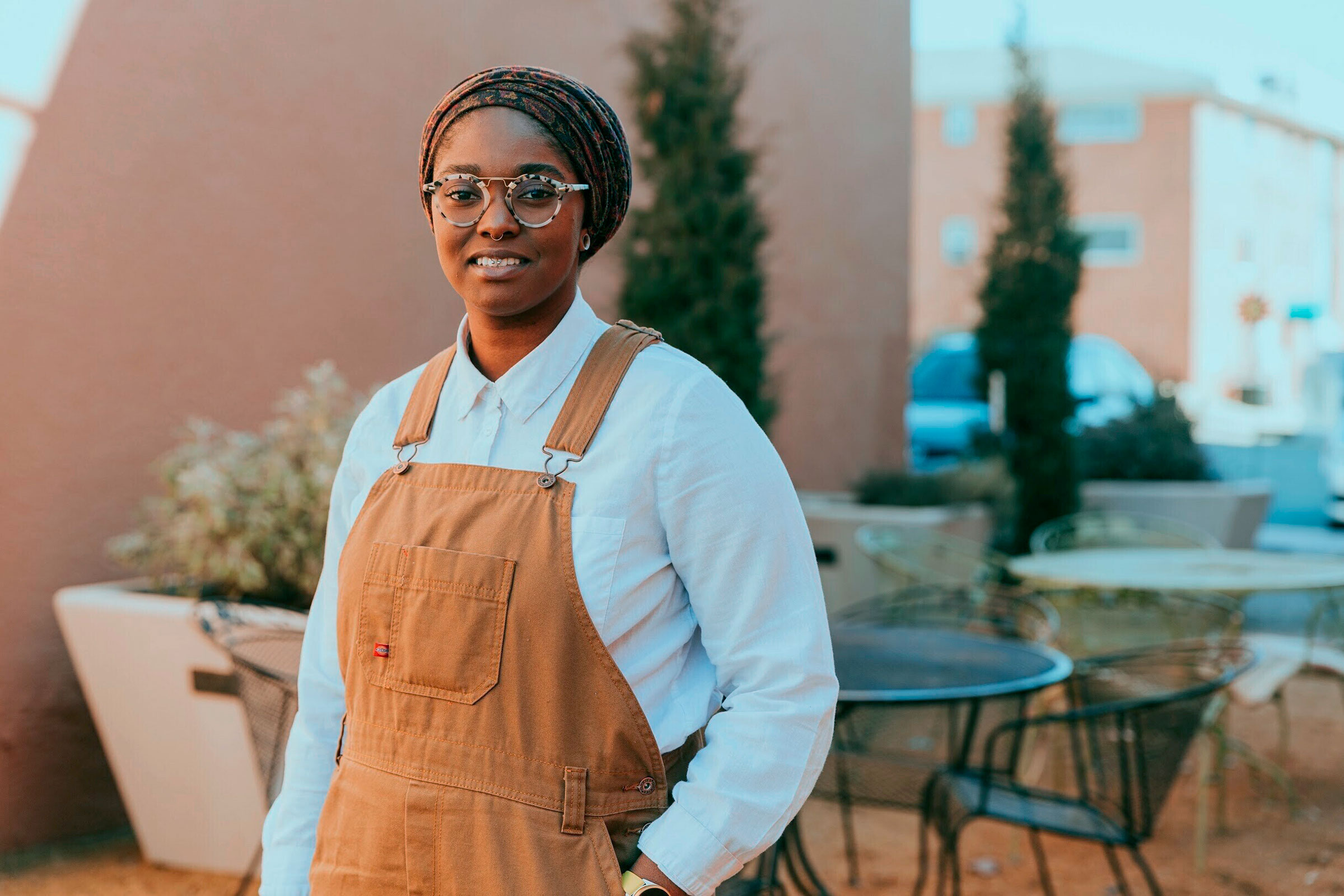
They say that since their election, they’ve received messages of support from people across the world, and particularly from young people who had felt like they could not go into politics because of who they are. “To be able to bring in a new lens to the legislature is a really great experience, a really humbling experience—and also a really daunting experience,” Turner tells TIME.
In New York City, Representative-elect Ritchie Torres also describes himself as “deeply shaped by my lived experience,” and says he understands first-hand the difficulties that many residents in his district face. “I never thought I would embark on a journey that would take me from public housing in the Bronx to the House of Representatives in Washington, D.C.,” he says. Torres, whose mother raised him and his two siblings in a single-parent household, while working a minimum wage job, will become the first openly-gay, Black, Latino Congressman when Congress convenes on Jan. 3. (Mondaire Jones, also from New York state, will join Torres as the first openly gay, Black Congressmen.)
In his previous role as New York City Council member, Torres advocated for people of color in public housing, helped to open the first homeless shelter for LGBTQ youth in the Bronx and secured funding for LGBTQ senior centers across the city. Reflecting on the record number of election winning LGBTQ candidates, Torres counts himself among a new generation of elected officials as diverse as America itself: “America is gradually realizing the promise of a multi-racial, muti-ethnic, inclusive democracy.”
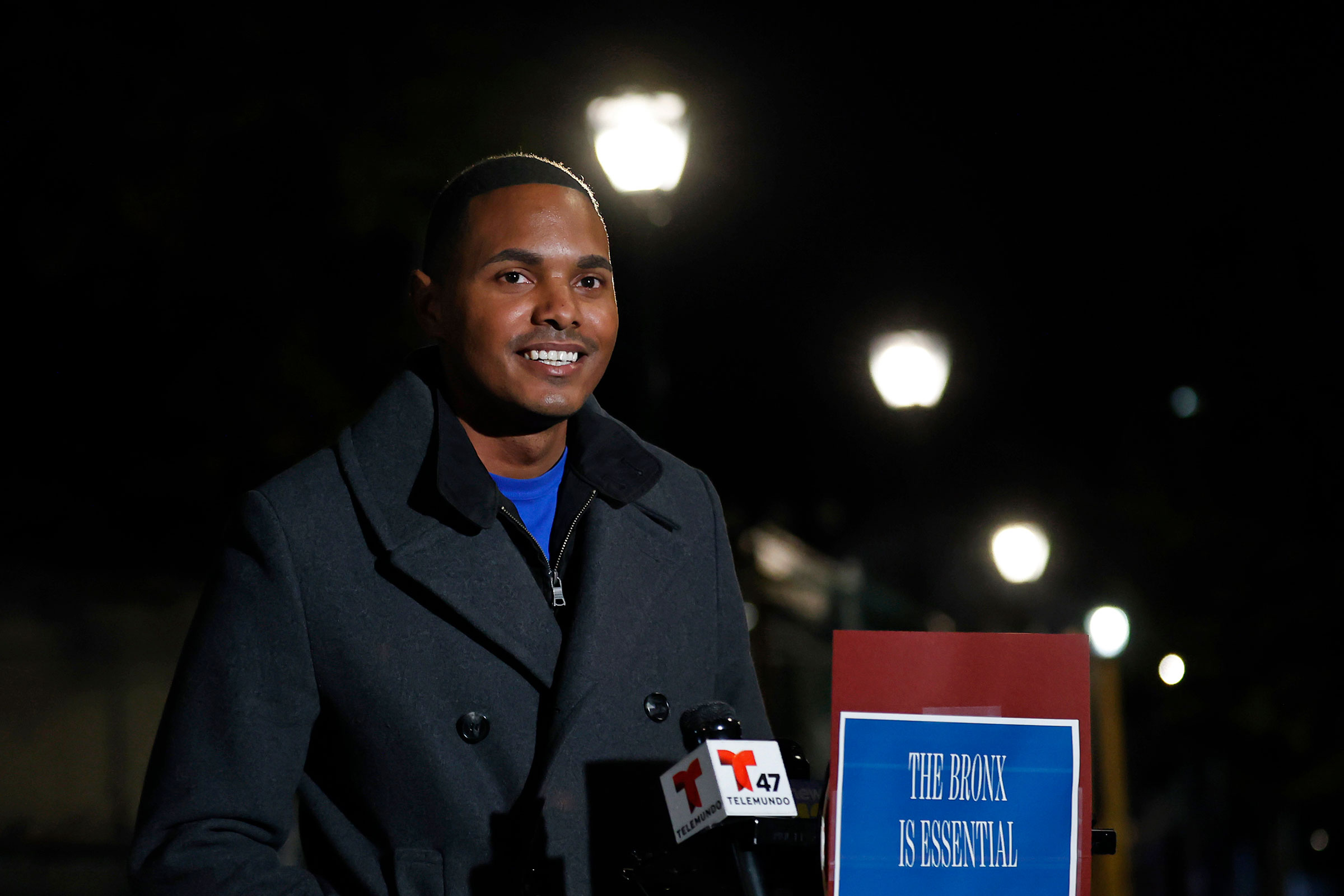
According to the LGBTQ Victory Fund, seven out of the 334 known wins by openly LGBTQ candidates were from candidates running as Republicans. That number includes Eddie Mannis, who won a seat in the Tennessee’s House of Representatives. (Mannis and Democrat Torrey Harris will be the first two openly gay men elected as Tennessee state representatives.) Mannis’ primary race was somewhat contentious; he says he was accused of not being “Republican enough” by his GOP opponent during the primary campaign in August. “Labels like ‘moderate,’ ‘Republican,’ and ‘Democrat’ make my head spin after a while,” says Mannis, “because I personally believe that civility and respect are really the most important things.”
Mannis did not disclose his vote in the Presidential Election but says he voted for Pete Buttigieg, whom president-elect Joe Biden recently nominated as Secretary for Transportation, in the Democratic primary. Buttigieg was the first ever openly gay, major presidential candidate to run for the Democratic nomination, and if confirmed, would be the first openly gay Cabinet member in U.S. history. Mannis says the fact that Buttigieg’s sexuality did factor into his vote, but moreso what he describes as Buttigieg’s “statesman”-like qualities. In Mannis’ own political life, he also wants to be known for his achievements first and foremost: “I want to be defined as an entrepreneur, a first generation business owner who has worked hard, and who has really tried to give back to the community, he says, “and that I’m also a gay man.”
Like other state representatives, Mannis’ work started right after the election in his district of Knoxville, and he is looking ahead to steering post-pandemic economic recovery plans in his district. For Michele Rayner-Goolsby, who became the first openly queer, Black woman to win an election in Florida with her victory in the state’s House District 17 election, it’s been all hands on deck; a majority of her constituents live in Black and brown communities facing systemic issues with housing and healthcare that the pandemic has exacerbated. “The excitement and the privilege and honor of being able to serve is there, but it’s also balancing that with understanding the seriousness of what we’re up against,” says Rayner-Goolsby.
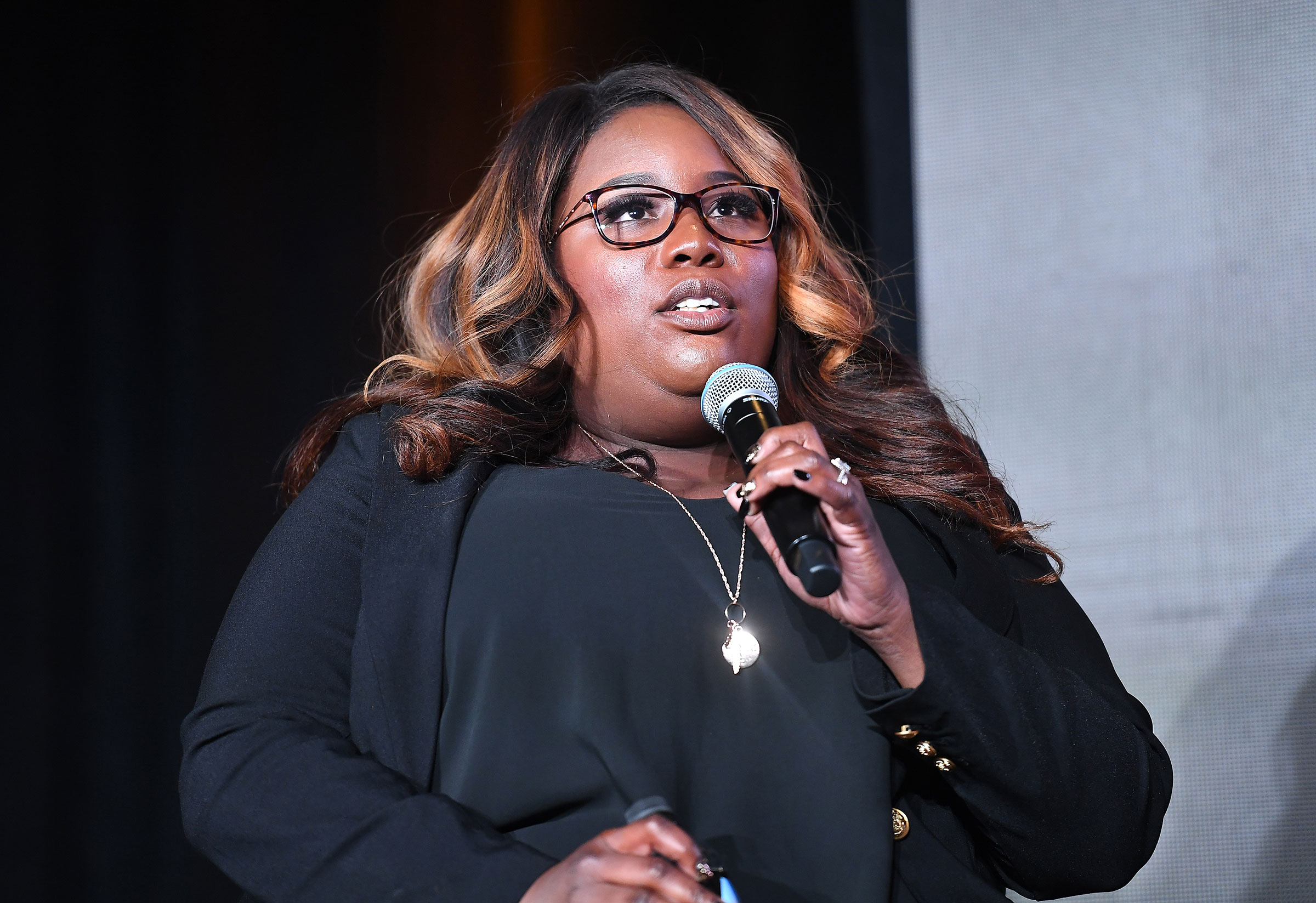
When Rayner-Goolsby’s win was confirmed, she remembers thinking of a quote from the scholar Audre Lorde: “If I didn’t define myself for myself, I would be crunched into other people’s fantasies for me and eaten alive.” She says that this attitude should be reflected, and championed, throughout the Democratic Party, particularly given the efforts of grassroots organizers who helped get out the vote. “Joe Biden is in the White House because of Black women,” she tells TIME, “and it is time that we have our due and we are respected for the work we do within politics.”
In her victory speech on Nov. 8, Vice President-elect Kamala Harris spoke of being the first, but not the last woman to take up the office of vice-president. (Harris will also be the first Indian American to serve in that office.) Rayner-Goolsby sees her role similarly—as “making the road smoother for those who are coming behind me”—and as a unique opportunity to champion legislation affecting the different identities she holds.
“It’s not just [about] a portion of our community getting elected to public office, it’s LGBTQ people of color, it’s trans folks, it’s queer folks of every background and different religions,” Sarah McBride concurs. “To see that diversity within the rainbow wave, I think is a sign of our progress.”
For McBride, who worked as a campaign staffer on Joe Biden’s late son Beau Biden’s campaign for attorney general, it was a privilege to share the ballot with “Delaware’s favorite son” on the presidential ticket. “What’s meaningful for us is that we’ve seen the goodness of Joe Biden, because we’ve seen him and his family up close,” she says. “That’s true for me in my own life—I’ve seen his big heart, personally, when he and Dr [Jill] Biden and the whole Biden family embraced me after I came out as transgender without skipping a beat.”
Biden has pledged to repeal the transgender military ban and prioritize passing the Equality Act during his first 100 days in office. Both advocates and lawmakers are hopeful, yet still plan to hold him and his administration to account. McBride and other lawmakers say it’s critical to not only undo the attacks of the last four years, but to strengthen and build upon existing protections for LGBTQ people.
“I have full faith in the people that we have elected to be able to chip away at [the damage] in a meaningful way,” says Mauree Turner. “Politics, especially where we are in America right now, is a relay race. We are continuously pushing the door open a little bit more so that people will come after us and be able to continue that work.”
Correction, Jan. 6
The original version of this story misstated the history made by Pete Buttigieg’s presidential bid. He was the first openly gay candidate to run for the Democratic Party’s presidential nomination, not the first openly gay candidate to run for president overall.
More Must-Reads from TIME
- Why Biden Dropped Out
- Ukraine’s Plan to Survive Trump
- The Rise of a New Kind of Parenting Guru
- The Chaos and Commotion of the RNC in Photos
- Why We All Have a Stake in Twisters’ Success
- 8 Eating Habits That Actually Improve Your Sleep
- Welcome to the Noah Lyles Olympics
- Get Our Paris Olympics Newsletter in Your Inbox
Contact us at letters@time.com